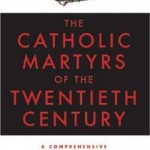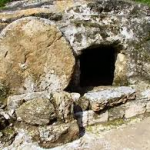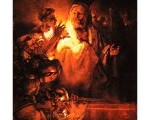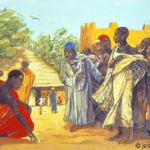Fourth Sunday of Easter – Cycle C
Reflecting on Revelation 7, 9, 14b-17
It’s only during the seven weeks of the Easter season that we read from the book of Revelation, certainly the least understood book in the bible. The book is not a secret code, to be cracked by those up on their conspiracy theories and watchings of the moon, to tell only the spiritual elite when the end of days will occur.
It is, however, a book written to comfort those who lived in Ephesus at the time Emperor Domitian introduced the cult of imperial Rome. This was enforced participation in sacrifices and festivals that honored Domitian and his ancestors; yes, the very ones who had destroyed Jerusalem and its temple. The Christians in Ephesus were horrified that they were expected to celebrate the murderers of their grandparents and parents. Revelation is written to comfort those who would stand up, even to the point of death, to this imperative.
Vatican reporter John Allen has done much to educate us on the greatest era of brutal religious martyrdom, which is our own. Every year, one hundred and fifty thousand people are martyred as a direct result of their faith, or the works of charity inspired by their faith. Eighty percent of these martyrs are Christians. There were well over one million Christian martyrs in the twentieth century, and of course the Nazis murdered six million Jews on the pretext that “Christ killers” were not part of the Master Race.
We don’t hear of these martyrdoms much because we hope that we live in more enlightened times, where religion isn’t used as an excuse to take land and lives. But the blood of the martyrs of El Salvador and Nigeria and Kenya and Turkey and Iraq and Korea says otherwise. We must not forget them.
What would YOU like to say about this question, or today’s readings, or any of the columns from the past year? The sacred conversations are setting a Pentecost fire! Register here today and join the conversation.
I have come to light a fire on the earth; how I wish it were already burning (Lk.12:49).











This is a penetrating question…I used to meet Jesus at work. Now that my job has changed dramatically, I no longer am able to see Him in the face of people I care for. Though I haven’t asked the question in the same way you asked it, Kathy, I know I need to have an answer. And I don’t currently have one. I am getting a lot of similar messages, and it is causing me to evaluate where I am at in life!
Hi, Kath. Such nice reflections. I just recommended your column to my neighbor, Jeanie, who is really struggling with her knee surgery. She is wearing one of those little bags, full of antibiotics that release automatically. It’s very serious. Thanks for any extra prayers!
Love you,
Cindy
My special place is in my studio where I make jewelry.
I have often met Jesus @ Ben & Kathy’s “little pharmacy,” and am sad to see it go. Other places I seek Him: on my yoga mat, yantra meditation, and walking around the north lake at Washington Park. I love this question, and the vivid picture of the tormented Peter just doing what he was doing when he first met Jesus–and encountering him anew/afresh/alive!